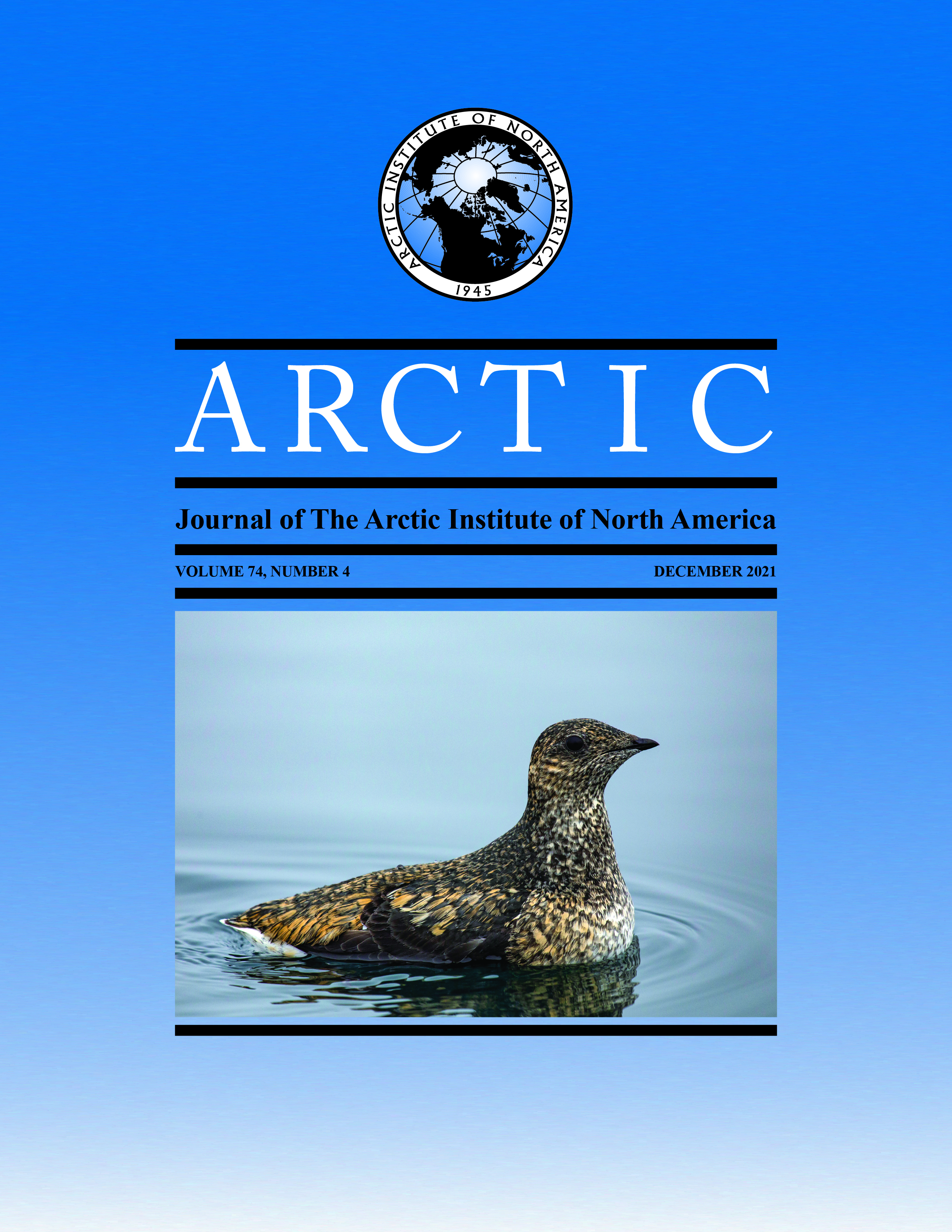Documenting Indigenous Knowledge to Identify and Understand the Stressors of Muskoxen (Ovibos moschatus) in Nunavut, Canada
DOI:
https://doi.org/10.14430/arctic73853Keywords:
muskox; Ovibos moschatus; wildlife; stress; Indigenous knowledge; ArcticAbstract
Indigenous knowledge provides valuable information on wildlife health and ecology, contributing to a broader understanding of the patterns and phenomena observed. Muskoxen (Ovibos moschatus), an important species for the subsistence and culture of Inuit communities in the Arctic, are increasingly exposed to diverse stressors linked to rapid climate change and other anthropogenic changes. Identifying and understanding these stressors and their impacts on muskoxen will inform management, health monitoring, and future research. To achieve this understanding, we documented Indigenous knowledge through seven semi-structured small group interviews, each involving two to three purposely chosen muskox harvesters in Kugluktuk, Nunavut, Canada to (1) establish the characteristics of healthy muskoxen, (2) determine the factors considered to impact muskoxen, and (3) understand, from an Indigenous knowledge perspective, the results from a study on the sex, seasonal, and annual patterns of glucocorticoids (described as “stress hormones” for the purposes of the interviews) in muskox hair. Key outcomes include (1) a more holistic understanding of muskox health and what it encompasses, (2) recognition and exploration of a rich One Health perspective expressed by participants around factors influencing muskoxen in a changing world and highlighting the multiple socioecological connections, and (3) a broader comprehension of the glucocorticoid (stress) patterns measured in muskox hair, the various factors that influence them, and their interrelations. This study represents a meaningful advancement in the process of actively involving communities at all steps of the research and highlights the important contributions Indigenous knowledge can offer to the complex field of wildlife endocrinology research.
Downloads
Published
Issue
Section
License
Copyright (c) 2021 ARCTIC

This work is licensed under a Creative Commons Attribution 4.0 International License.


